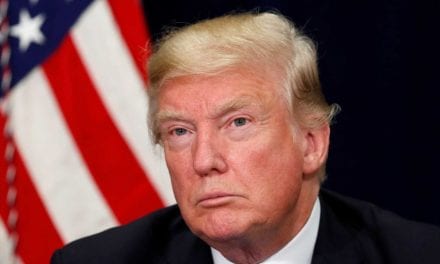By Panagiotis Rigas, alternate defense minister-Defensenews
Defense and security policies are constituent elements of the state’s hard core, and as such are resistant to change. This very statement also implies that any change or reshaping of these policies reflects deep and fundamental changes of both national and international essence.
In the past two decades, defense and security policies have been following hard on the heels of new developments in international relations. Increasing economic globalization, multiplying transnational cooperation and booming technological advancement have established a new context for defense and security: a context where new threats, as well as new challenges, have arisen, as if they were the other sides of the very same coin.
In today’s rapidly changing international environment, a new dynamic has been formed. A binary dynamic of countervailing forces: one side of the rope pulling toward the militarization of international relations and the other toward the politicization of military alliances.
In a democratic context, of course, the purpose of military structures is to serve politics, not dictate them. These politics should not only allow, but further support and contribute to the establishment of, an international framework of defense and security that helps countries and societies grow and develop. Under that prism, our priorities and goals will be served best within the triptych of democracy, peace and security.
In any case, the dilemma of “security vs. democracy,” which certain sides are keen to impose on the public dialogue, is a false one. Security guarantees democracy, and democracy makes security useful for society. However, extremist political groups have been trying to distort and politically exploit this clear-cut, two-way relationship. Their escalating and monolithic bombast of security concerns directly addresses the primal instinct of fear. Once triggered, fear makes their audience prone to manipulation and easily drawn to extremist, anachronistic and dead-end ideologies and practices.
It should be a point beyond dispute that as the international setting is growing increasingly unstable and fragile, politics — as a problem-handling mechanism — should now more than ever be setting goals and priorities that will effectively deal with and wipe out global instability. The effort to cash in on this is wrong, irresponsible and potentially dangerous.
At the same time, we keep a vigilant eye on the new forms of conflicts that take place outside the bounds of war as we know it, as well as on the new threats that arise in increasingly complex shapes and forms. These developments, combined with new technological means, form the future “battlefield.”
The development of civilization inevitably places emphasis on the aversion of war, through the utilization of new technologies. The use of unmanned military means and nonlethal weapons could radically alter the very nature of war.
After so many centuries of human history, the central goal of a power struggle should be the opponents’ undermining, not their demise, as well as the prevention of any collateral damage and civilian casualties. And since today’s technology makes it possible to design weapon systems especially for the above purposes, humanity has the ability to make a big and very significant step forward.
Cash-strapped Athens is pitching an unusual idea to modernize its navy, though one expert warns nobody should hold their breath about this one.
Greece is a pole of geopolitical stability, and at the same time a country surrounded by regions of instability, upheaval and war. It is a country that recently found itself in the eye of the storm of two grave international crises and managed to successfully handle both.
Having overcome the financial crisis, we’ve managed to put our economy back on a track of growth, and we are implementing a development model that is investor-friendly as well as socially just. At the refugee crisis front, the immediate goal of war termination needs to be followed by a change of attitude — a shift from the exclusive to the inclusive — οf economically strong countries toward the least developed ones.
The relations between Greece and the United States of America have entered a new era of multidimensional cooperation based on mutual interest. This partnership should aim at expanding and covering the widest possible spectrum of economic sectors.
By investing in Greece, one sets foot in a vast area that ties together three continents, an area that has come to the fore of international developments and includes the Balkans, the Black Sea, the Middle East and North Africa. Moreover, if Greece’s location is the gateway to a strategic area of considerable economic activities, its highly educated and qualified people are the multiplier of the potential of any investment.



















